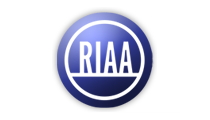This website uses cookies so that we can provide you with the best user experience possible. Cookie information is stored in your browser and performs functions such as recognising you when you return to our website and helping our team to understand which sections of the website you find most interesting and useful.
Business News Digital Labels & Publishers
Recent market trends confirmed in latest RIAA stats, but “fair rates” now issue number one
By Chris Cooke | Published on Tuesday 22 September 2015

With record industry trade bodies seemingly more stat happy than ever, putting out figures here, there and everywhere, there is little doubt that – with just a few regional exceptions – the key trend in recorded music remains: CDs down a little, downloads down a lot, streaming income booming. Oh, and let’s have a little bit of vinyl revival thrown in there for good measure.
The latest figures from the US record industry back all that up. Summarising the latest stats from the Recording Industry Association Of America, the boss of America’s Music Business Association of music sellers, James Donio, noted yesterday: “It is extremely encouraging to see that overall wholesale revenues are on the upswing, with an increase of 0.8% in the first half of 2015. Streaming revenue has offset losses in digital download revenue by growing 23% to $1.03 billion, topping that milestone for the first time and accounting for about a third of all industry revenue”.
Donio also notes that vinyl, up another 52% in the US so far this year, now accounts for 30% of physical shipments Stateside, though that possibly tells you more about how much CDs have slumped in this market. But “look at how we’ve diversified” remains a key message from the record industry, with the MBA chief adding: “RIAA’s findings perfectly illustrate an industry that is now able to successfully generate revenue from a plethora of sources, both digital and physical, that cater to the broad spectrum of music fans”.
Meanwhile, over at the RIAA itself, boss man Cary Sherman told reporters: “The data continues to reflect the story of a business undergoing an enormous transition. There are many positive signs: continuing the trend from 2014, wholesale revenues for the first half of 2015 increased. And revenues from streaming music services continue to grow at a healthy double digit rate. The product of music and the extraordinary roster of artists represented by today’s music labels remains in high demand. That is the bedrock of a successful future”.
Perhaps the most interesting element of the various packs of stats being pumped out by the music industry these days is that the sign-off statement has now changed. A few years ago the standard line from the record industry’s trade groups was “we’re doing fine thanks, except piracy, oh piracy, we’re all going to be killed by piracy, hey Mr Government, get off your fat arse and do something about fucking piracy”.
However, yesterday Sherman rounded off his group’s latest figures with the industry’s new standard sign-off line. “Intense demand and billions of streams does not always equal fair market rates or a fair playing field. Addressing that is an essential element of fulfilling the enormous promise of today’s digital marketplace”.
The problem now, see, isn’t all the illegal sites, but those legal or legal-status-to-be-defined services which, for one reason or another, are getting preferential rates. Globally that means YouTube and SoundCloud, and their exploitation of those bloody safe harbours.
In the US it also means Pandora, which gets access to recordings under a compulsory licence with rates set by the Copyright Royalty Board, rates the hugely popular US personalised radio service is always trying to push down.
Yesterday, as the RIAA pushed out its latest stats, Pandora got the all clear to present the direct deal it made with indie labels digital agency Merlin in the current Copyright Royalty Board review of the rates it pays under the compulsory licence.
Pandora is expected to use the Merlin deal in its argument for lower royalty payments across the board, even though that arrangement was more complex than that, providing marketing kickbacks that would be redundant if applied across the board. What the CRB does later this year when considering this latest review remains to be seen, though give the firm’s share price bounced up yesterday, investors seem hopeful Pandora could get what it wants.
Meanwhile, the record industry will continue to lobby, in the US and beyond, for more control over the rates it receives from those services that have gained considerable competitive advantage by utilising elements of copyright law that provide, one way or another, a preferential deal.





